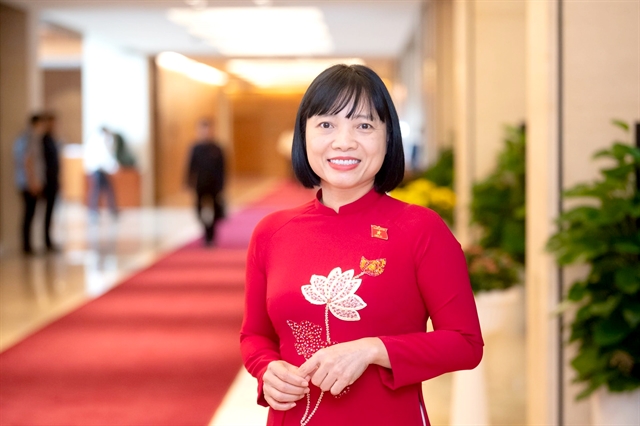 Life & Style
Life & Style
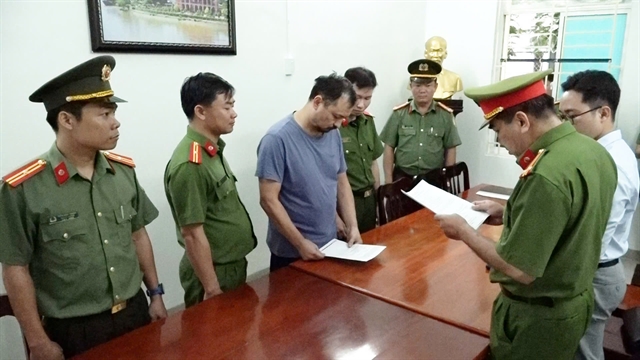
Localities in the western cluster of Cửu Long (Mekong) Delta need to foster regional cooperation to create highly competitive tourism products in the Mekong River Delta region, officials have said.
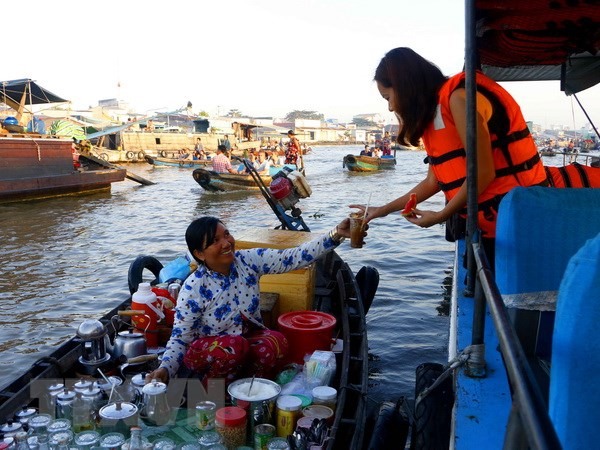 |
| For sale: Visitors at Cái Răng floating market in Cần Thơ City. — VNA/VNS Photo Thanh Liêm |
HCM CITY — Localities in the western cluster of Cửu Long (Mekong) Delta need to foster regional co-operation to create highly competitive tourism products in the Mekong River Delta region, officials have said.
The western cluster of the Mekong Delta region comprises Cần Thơ City and the six provinces of Bạc Liêu, Cà Mau, Sóc Trăng, An Giang, Hậu Giang and Kiên Giang.
In the first six months of the year, the number of tourist arrivals to the cluster rose by 11 per cent to reach 17.8 million, accounting for more than 76 per cent of total tourist arrivals to the Mekong Delta region.
Tourism revenue was estimated at VNĐ10.4 trillion (US$452.1 million), a year-on-year increase of more than 33 per cent.
Trần Hiếu Hùng, director of Cà Mau Province’s Department of Culture, Sports and Tourism, said the tourism co-operation programme in the western cluster failed to bring expected outcomes due to an overlap in tourism products and uninteresting inter-regional tour packages.
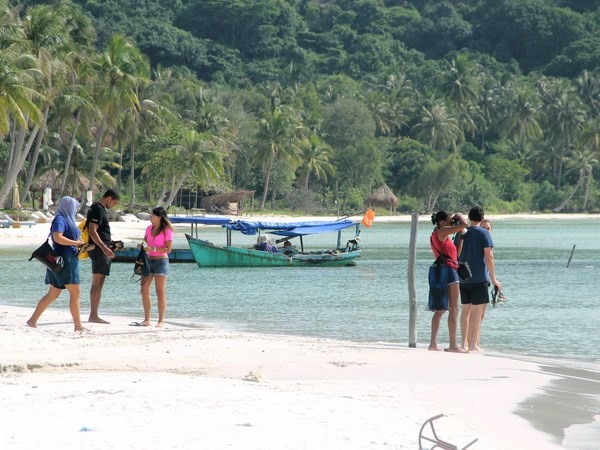 |
| Idyllic: Visitors at Bãi Sao (Star Beach) on Phú Quốc Island. — VNA/VNS Photo Trường Giang |
Under the programme, the seven localities pledge to cooperate in marketing and promotion activities, new tourism products, unique inter-regional tour packages, human resource training, and international and national tourism events.
But the tourism potential in these localities has yet to be fully realised due to loose regional linkages in development of new tourism products and an overlap in tourism products, poor infrastructure and services, as well as ineffective and insufficient marketing.
Bùi Quốc Thái, deputy director of Kiên Giang Province’s Department of Tourism, said localities in the Mekong Delta region were seeking unique tourism products.
The Mekong Delta region is well known for its waterway landscape, rice paddy fields, and verdant orchards, but localities do not invest in innovative and attractive models, resulting in similar tourism products, Thái said.
Floating markets, Đờn ca tài tử (southern amateur music) and food, for example, are designed for all kinds of tours. As a result, travellers just visit one place in the region.
Phạm Thế Triều, deputy director of An Giang Province’s Department of Culture, Sports and Tourism, said tourism human resources lacked skills in communication, foreign languages, and professional and management skills.
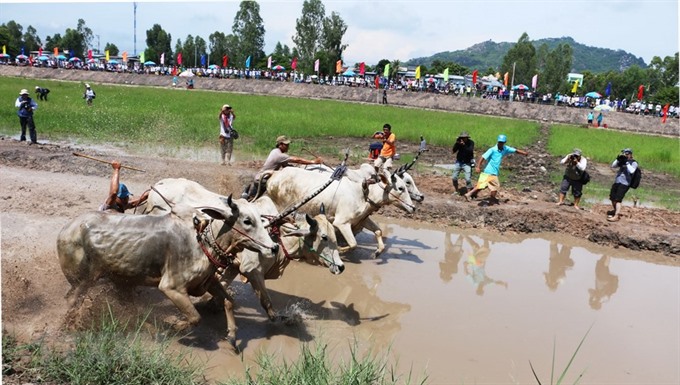 |
| Stampede: The 2017 Cow Racing Festival in An Giang Province. — VNA/VNS Photo Công Mạo |
Although tourism infrastructure and lodging facilities in the region have developed rapidly to meet the rising demand, most are small scale, Triều said.
There is also a lack of high-end facilities and services operated by famous brands, he said.
Tourism experts said the linkages in tourism products aim to give diverse experiences and attractive itineraries to tourists.
Du Tô Tuấn, director of Vietravel’s Bạc Liêu Province branch, said that localities should take into consideration the demand of different age groups and incomes as well as specific market segments such as local and inbound tourists to develop tourism products and marketing strategies.
Tourism products for inbound visitors should focus on ecotourism tours, cultural and craft villages, local lifestyles and festivals.
Spiritual tourism is mostly favoured by local tourists, he said.
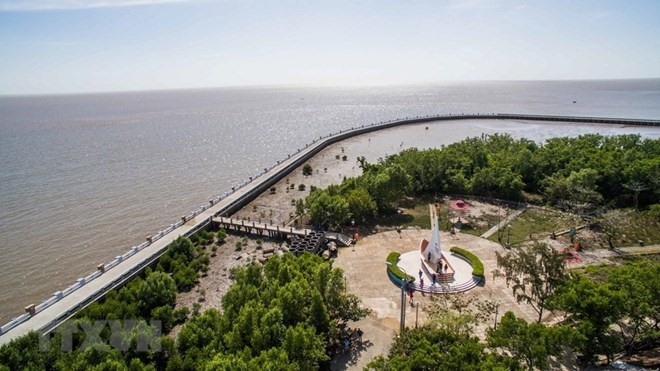 |
| On the water: A view of the Cà Mau Cape tourism area. — VNA/VNS Photo |
Cao Tấn Dũng, deputy director of Fiditour’s Cần Thơ City branch, said a tourism product should be well organised to satisfy demands during the entire trip, from restaurants, accommodations to destinations.
Cần Thơ City and Phú Quốc Island in Kiên Giang Province, as the region’s tourism hubs, should play a driving force for the tourism industry of the entire region, Dũng said.
Under the master plan for tourism development in the Mekong River Delta region, the western cluster in the Mekong Delta will focus on unique tourism products such as the Cà Mau Cape, sea and island leisure tourism, eco-tourism, and cultural tourism.
The plan targets developing three destinations in the cluster, including Phú Quốc Island in Kiên Giang Province, Cà Mau Cape tourism area in the country’s southernmost province of Cà Mau, and Sam Mountain in An Giang Province.
It also focuses on the development of four national tourist sites, including Ông Hổ islet in An Giang Province, Đờn ca tài tử and musician Cao Văn Lầu memorial house in Bạc Liêu Province, Ninh Kiều wharf in Cần Thơ City and Hà Tiên Town in Kiên Giang Province. — VNS

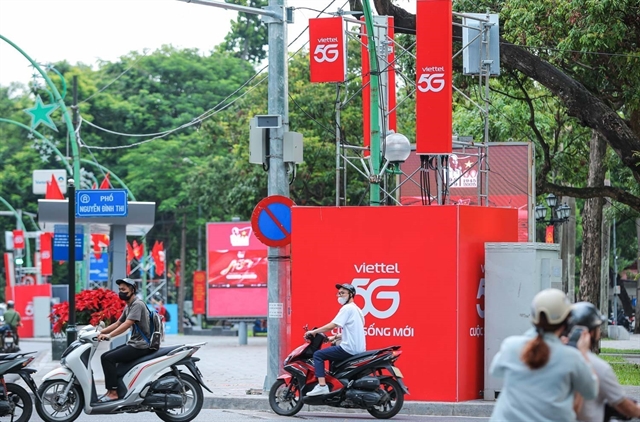
.jpg)
